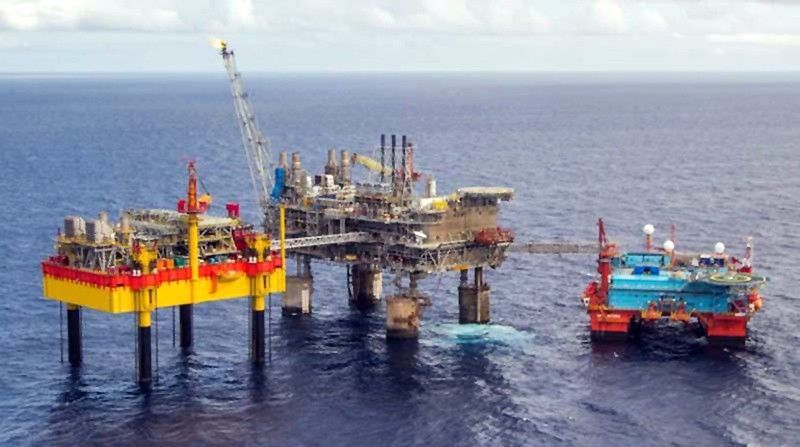The importance of Malampaya: A story of power

(Last of three parts)
MANILA, Philippines — The Malampaya deep water gas-to-power project is the biggest success story in the Philippine energy sector as it signaled the birth of the natural gas industry in the country.
There is no resource like it elsewhere in the country so far. It is undoubtedly a story of power.
Located 50 kilometers offshore Northwest Palawan, the Malampaya project began its commercial operations in January 2002 and has contributed over $12 billion in revenues to the Philippine government while powering up to 20 percent of the country’s growing electricity requirements.
The Malampaya project has produced cleaner-burning natural gas which supplies five power plants in Luzon, the country’s largest island, with a combined capacity of 3,200 megawatts, according to the project brief.
“Malampaya is benefiting the country in countless ways, including reducing oil imports, ensuring a more stable supply of cleaner energy from an indigenous resource, and meeting up to 20 percent of the country’s energy requirements,” it said.
In 2013, the company embarked on Malampaya phases 2 and 3, which aimed to maintain the level of gas production to fulfill commitments under existing gas sales agreements, thus ensuring the steady supply of natural gas to power the Luzon electricity grid.
Two additional production wells were successfully installed in 2013 to signify the completion of Malampaya Phase 2. In 2015, Malampaya Phase 3, which involved the design, fabrication and installation of a new depletion compression platform was completed. This is the first offshore platform to be fully built in the Philippines, thus enhancing local employment opportunities and bringing technical expertise into the country, the project brief said.
Malampaya is an offshoot of the late dictator Ferdinand Marcos‘ policy of developing and exploring indigenous petroleum resources following the Oil Embargo Crisis of 1973, which was marked by long queues in gasoline stations as motorists needed to fill up their tanks amid very limited supply of imported oil.
People were given vouchers because supply had to be rationed. Today’s senior citizens may still remember vividly those days and nights of lining up in the stations waiting for their tanks to be filled.
Decades later and with imported oil prices skyrocketing again, critics fear that if Malampaya ends up in the “wrong hands,” the country’s energy security would be compromised.
Under review
As of this writing, the Shell transaction is under review.
Should the DOE decide in the end to approve the deal despite the controversies that have cropped up, it would have to prove the deal is above board, that no law was violated, and that Uy‘s Udenna was not extended extraordinary benefits.
Energy Secretary Alfonso Cusi is optimistic he can very well clear his name and his department‘s actions regarding Malampaya. He is likewise ready to face the courts to defend his decision, he told The STAR recently.
He believes the allegations are politically motivated. He also hinted at disgruntled bidders having a hand in the attacks against him. The Malampaya attracted more than 30 interested parties, both local and foreign.
Others in the business community point to Uy‘s closeness to Cusi. The DOE chief sold his Starlite Ferries to Uy some years back.
Asked about his supposed close friendship with Uy, Cusi said: “They are all my friends.“
Worse case scenario
Moving forward, any decision on the Malampaya deal would have an impact on the country‘s energy situation.
Uy‘s camp said delays in letting the Malampaya consortium continue with its operations would also mean delay in rejuvenating the project. This could translate to higher cost of electricity for Filipino consumers as power plant operators would have to use imported fuel to keep their plants running.
At the same time, a former energy executive said, entrusting Malampaya in the hands of a company with no experience in exploration may also be detrimental to the country‘s energy security.
China may take interest in the project through Uy and with the Duterte administration‘s cozy relationship with Beijing, China‘s entry may pose an even bigger threat to the country‘s security, the former energy executive said.
“There goes our energy security and overall security of the country,” he said.
Amid the uncertainty, a source working at the Malampaya rig said: “A large number of our operation engineers have left and in our recent 21 day maintenance shutdown, only 26 percent of the originally planned work was able to proceed due to manpower/material delivery problems.“
The country’s energy plan
Beyond Malampaya and the controversies surrounding it, experts believe the government must prioritize the discovery of new sources of clean energy, perhaps the next Malampaya.
A former energy secretary said that beyond the Malampaya acquisition, the Duterte administration still has no concrete energy plan implemented, not even an energy mix.
The Competitive Selection Process, which mandates distribution utilities to source electricity in the least-cost manner, should likewise be legislated, the source said.
The Philippine Energy Plan (PEP) 2012-2030 seeks to enable mainstream access of the larger populace to reliable and affordable energy services to fuel, most importantly, local productivity and countryside development.
To do this, exploration and discovery of indigenous petroleum resources must continue.
This is the only way the Filipino people can be assured of the delivery of secure, sustainable, sufficient, affordable and environment-friendly energy to all economic sectors.
- Latest
- Trending


























